117 citations,
August 2005 in “Ultramicroscopy” Human hair's strength and flexibility vary by ethnicity, damage, and treatment.
 20 citations,
July 1988 in “Clinics in dermatology”
20 citations,
July 1988 in “Clinics in dermatology” Thioglycolate lotions are the most popular method for permanent waving and hair straightening.
 33 citations,
July 2021 in “Clinical, Cosmetic and Investigational Dermatology”
33 citations,
July 2021 in “Clinical, Cosmetic and Investigational Dermatology” Nanocarrier technology in cosmetics improves ingredient delivery and effectiveness while reducing side effects.

Water and fatty acids affect hair's surface differently based on hair damage, and models can help understand hair-cosmetic interactions.

Proretinal nanoparticles are a safe and effective way to deliver retinal to the skin.
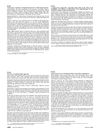 January 2008 in “Journal of The American Academy of Dermatology”
January 2008 in “Journal of The American Academy of Dermatology” Trichoscopy is a helpful and quick method to identify different types of hair loss in women.
 1 citations,
January 2015 in “Springer eBooks”
1 citations,
January 2015 in “Springer eBooks” Chemotherapy can cause skin side effects that affect patients' lives, but they can be managed to avoid interrupting cancer treatment.

Human hair keratins can self-assemble and support cell growth, useful for biomedical applications.
 3 citations,
January 2022 in “Scientific Reports”
3 citations,
January 2022 in “Scientific Reports” A new treatment called SAMiRNA-AR68 increases hair count in people with hair loss, showing similar results to existing treatments but without side effects.
 3 citations,
January 2017 in “Journal of cosmetology & trichology”
3 citations,
January 2017 in “Journal of cosmetology & trichology” The food supplement with L-cystine, Serenoa repens extract, and biotin safely reduced hair loss and improved hair growth in men and women.
 October 1987 in “Clinics in Dermatology”
October 1987 in “Clinics in Dermatology” Hair transplantation is beneficial if the right patients are chosen and the procedure is done carefully.
 25 citations,
August 2016 in “Journal of Cosmetic Dermatology”
25 citations,
August 2016 in “Journal of Cosmetic Dermatology” The marine complex supplement significantly improved hair growth in men with thinning hair without adverse effects.
 42 citations,
April 2008 in “Acta materialia”
42 citations,
April 2008 in “Acta materialia” Different ethnicities and treatments affect human hair strength and structure.
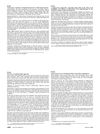 2 citations,
January 2008 in “Journal of The American Academy of Dermatology”
2 citations,
January 2008 in “Journal of The American Academy of Dermatology” Trichoscopy is a helpful and quick method to diagnose hair loss without shaving.
 42 citations,
January 2009 in “Colloids and Surfaces B: Biointerfaces”
42 citations,
January 2009 in “Colloids and Surfaces B: Biointerfaces” A certain surfactant sticks to human hair, making it change from water-repelling to water-attracting, which could help in hair conditioning.
 January 2015 in “Springer eBooks”
January 2015 in “Springer eBooks” Hair health is influenced by genetics, aging, and environmental factors, with proper care needed to maintain it.
 5 citations,
January 2021 in “Journal of Saudi Chemical Society”
5 citations,
January 2021 in “Journal of Saudi Chemical Society” Watercress oil may promote hair growth by activating specific receptors.
 1 citations,
May 2022 in “Pharmaceutics”
1 citations,
May 2022 in “Pharmaceutics” Tea seed oil in nanostructured carriers stimulates hair growth and feels less greasy when applied.
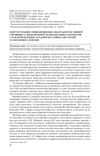 January 2015 in “Farmatsevtychnyĭ zhurnal”
January 2015 in “Farmatsevtychnyĭ zhurnal” The tincture made from nettle, sage, and horse chestnut in a 5:3:2 ratio is effective for treating telogen effluvium.
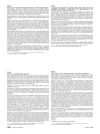 January 2008 in “Journal of The American Academy of Dermatology”
January 2008 in “Journal of The American Academy of Dermatology” Hair loss affects 20% of people, more in men and those over 35, and is often associated with a sensitive scalp.
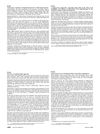 January 2008 in “Journal of The American Academy of Dermatology”
January 2008 in “Journal of The American Academy of Dermatology” A nonchemical lotion was found effective in killing head lice and their eggs in most people, indicating it could be useful for managing head lice.
 11 citations,
May 2022 in “Journal of immunology research”
11 citations,
May 2022 in “Journal of immunology research” Breast implants are linked to autoimmune symptoms, with over half of patients feeling better after removal, but the exact cause is unclear and may involve bacterial biofilm.
4 citations,
April 2020 in “Dermatology practical & conceptual” Topical finasteride works faster and better than 17α-estradiol for postmenopausal hair loss.
January 1997 in “Cosmetics and toiletries” A meadowfoam seed oil derivative can penetrate and repair human hair.
 34 citations,
July 1987 in “The Journal of dermatologic surgery and oncology”
34 citations,
July 1987 in “The Journal of dermatologic surgery and oncology” Improved dermabrasion techniques in 1987 led to better treatment results for skin issues like acne scars.
 14 citations,
September 2015 in “Ophthalmic plastic and reconstructive surgery”
14 citations,
September 2015 in “Ophthalmic plastic and reconstructive surgery” Surgical removal of abnormal fat pads fixed the woman's eyelid issue caused by likely silicone injections.
 13 citations,
June 2020 in “International Journal of Dermatology”
13 citations,
June 2020 in “International Journal of Dermatology” A rare scalp condition mainly in older women can be treated with various alternatives to steroids, which may have fewer side effects.
 48 citations,
March 2022 in “Nano Letters”
48 citations,
March 2022 in “Nano Letters” The document explains how to make antibacterial microneedles inspired by lamprey teeth to help heal infected wounds.
 97 citations,
May 2008 in “Journal of Cutaneous Pathology”
97 citations,
May 2008 in “Journal of Cutaneous Pathology” Different soft tissue fillers can cause various skin reactions; biodegradable fillers are safer and non-biodegradable ones like silicone can lead to long-term problems.
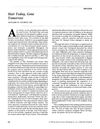 4 citations,
July 1993 in “The Journal of Dermatologic Surgery and Oncology”
4 citations,
July 1993 in “The Journal of Dermatologic Surgery and Oncology” The article concludes that hair restoration techniques must account for ongoing hair loss to ensure successful long-term results.


























